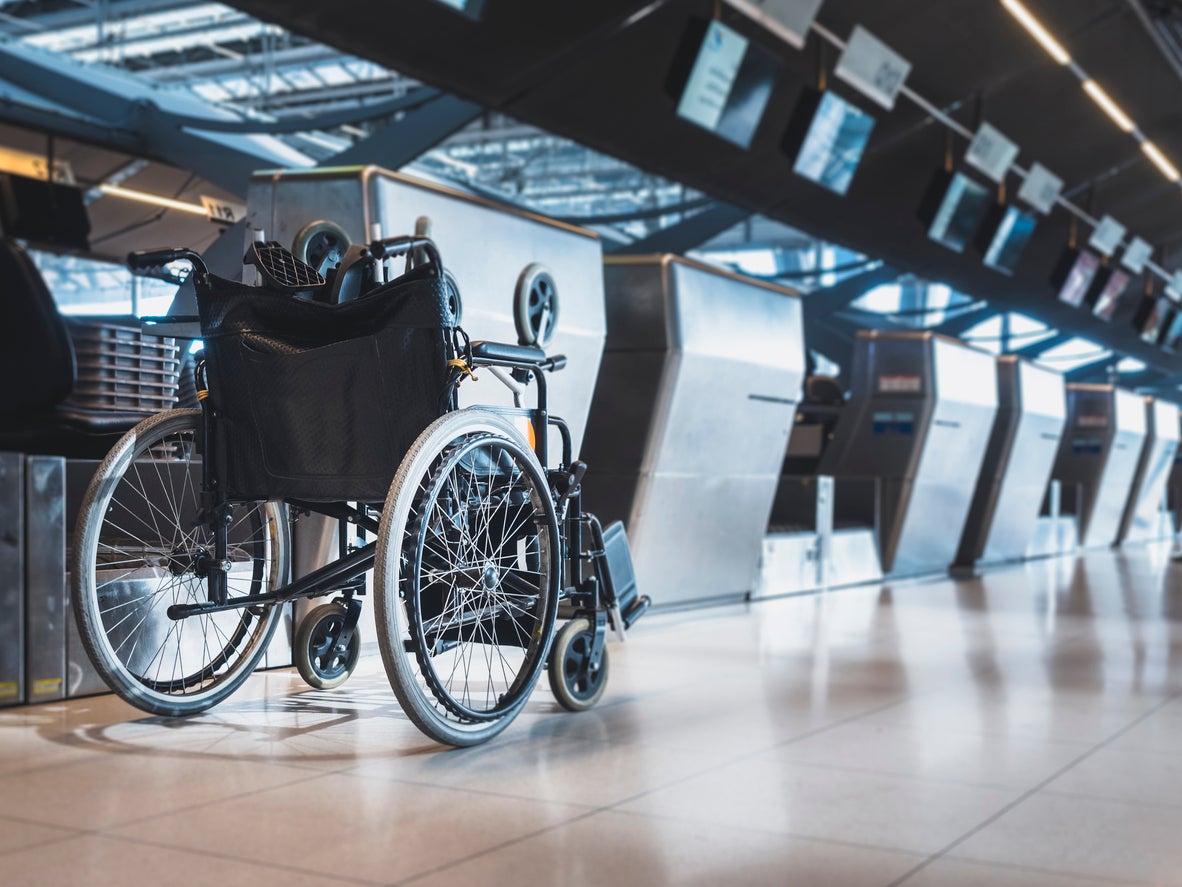How airports are improving travel for passengers with hidden disabilities
The report published by the Civil Aviation Authority looks at progress made since last year

UK airports are making progress when it comes to helping passengers with hidden disabilities, according to a new report published by the UK Civil Aviation Authority (CAA) today.
Hidden disabilities can include autism, dementia and hearing loss and many other conditions that are not immediately obvious.
This follows the CAA issuing new guidance for airports in December 2016 on how to improve the assistance they offer.
The report highlights the progress made and identifies areas where more work is needed. It comes as record numbers of people with all types of disability are flying.
Services being developed to tackle the issue include:
- Giving passengers the option to wear a lanyard or wristband (or other discreet identifier) to help make airport staff aware that they might need extra help at the security search area or elsewhere in the airport
- Providing enhanced disability awareness training packages for key customer facing staff, including those at security search areas, as well as those who provide direct assistance to disabled people
- Introducing family or assistance security lanes, which passengers with hidden disabilities can use, which provide a less stressful and rushed experience
- Publishing a wide range of accessible information for people with hidden disabilities, including pictorial guides, videos and other online guides on what to expect at the airport, especially at the security search stage
- Consulting with disability organisations, including those representing people with hidden disabilities, on how the design of the assistance service can best meet the needs of this group, and how it can best meet the needs of this group of passengers
The CAA will continue to work with airports so that the enhancements and improvements that airports have made are genuinely helping people with hidden disabilities access air travel, as well as working with airports and disability groups to broaden airports’ focus in terms of the types of hidden disabilities that their assistance services cater for.
“Record numbers of passengers with disabilities are travelling through UK airports, and so it’s hugely important that the assistance meets their particular needs,” said Matt Buffey, head of consumer protection at the UK Civil Aviation Authority.
“We know that people with hidden disabilities can find airports difficult and stressful places, in particular the security search, and we are pleased to see how well airports have responded in improving the assistance they offer and tailoring to the needs of people with hidden disabilities.”
Aviation Minister, Baroness Sugg, said: “Travelling by air can be a daunting experience for those with hidden disabilities.
“Whilst there is still more to do, we should recognise the real progress that has been made by airports since the CAA introduced requirements for specific assistance services for people with non-visible disabilities.”
The report acknowledged that further work needs to be done to ensure all UK airports continue to provide consistent and high quality assistance services to disabled people, including people with hidden disabilities.
It comes after several high profile stories about those with hidden or invisible disabilities having bad experiences at UK airports. In January 2018, a disabled passenger branded Stansted Airport staff “disgusting” after she was denied assistance because she “didn’t look disabled”.
Nathalie Allport-Grantham, 23, was flying to Nice with Ryanair on 31 December when a member of staff refused her the assistance she had confirmed ahead of her flight.
She had requested the use of a wheelchair to help her to the gate, but said it was later taken away from her by airport staff who then told her that she was “wasting their time” by asking for help.
Stansted Airport told The Independent: “Of course, we are very disappointed to hear about Ms Allport-Grantham’s experience and apologise for any distress caused.
“Special assistance is booked directly with the airline and handled by the airport’s PRM provider Omniserv. We are speaking to the provider to find out more about the circumstances of the incident.”
Join our commenting forum
Join thought-provoking conversations, follow other Independent readers and see their replies
Comments
Bookmark popover
Removed from bookmarks